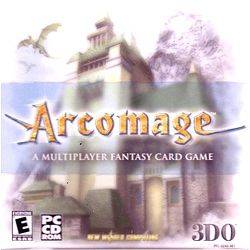
A battle is an occurrence of combat in warfare between opposing military units of any number or size. A war usually consists of multiple battles. In general, a battle is a military engagement that is well defined in duration, area, and force commitment. An engagement with only limited commitment between the forces and without decisive results is sometimes called a skirmish.

A fumble in gridiron football occurs when a player who has possession and control of the ball loses it before being downed (tackled), scoring, or going out of bounds. By rule, it is any act other than passing, kicking, punting, or successful handing that results in loss of ball possession by a player.

A Pyrrhic victory is a victory that inflicts such a devastating toll on the victor that it is tantamount to defeat. Such a victory negates any true sense of achievement or damages long-term progress.
Attrition warfare is a military strategy consisting of belligerent attempts to win a war by wearing down the enemy to the point of collapse through continuous losses in personnel, materiel, and morale. The word attrition comes from the Latin root atterere, meaning "to rub against", similar to the "grinding down" of the opponent's forces in attrition warfare.

Sportsmanship is an aspiration or ethos that a sport or activity will be enjoyed for its own sake, and with proper consideration for fairness, ethics, respect, and a sense of fellowship with one's competitors. A "sore loser" refers to one who does not take defeat well, whereas a "good sport" means being a "good winner" as well as being a "good loser".
In chess and other chess-like games, a tempo is a "turn" or single move. When a player achieves a desired result in one fewer move, the player is said to "gain a tempo"; conversely, when a player takes one more move than necessary, the player is said to "lose a tempo". Similarly, when a player forces their opponent to make moves not according to their initial plan, one is said to "gain tempo" because the opponent is wasting moves. A move that gains a tempo is often called "a move with tempo".
In chess, a tactic is a sequence of moves that each makes one or more immediate threats – a check, a material threat, a checkmating sequence threat, or the threat of another tactic – that culminates in the opponent's being unable to respond to all of the threats without making some kind of concession. Most often, the immediate benefit takes the form of a material advantage or mating attack; however, some tactics are used for defensive purposes and can salvage material that would otherwise be lost, or to induce stalemate in an otherwise lost position.
Gamesmanship is the use of dubious methods to win or gain a serious advantage in a game or sport. It has been described as "Pushing the rules to the limit without getting caught, using whatever dubious methods possible to achieve the desired end". It may be inferred that the term derives from the idea of playing for the game as opposed to sportsmanship, which derives from the idea of playing for sport. The term was popularized by Stephen Potter's humorous 1947 book, The Theory and Practice of Gamesmanship . It had, however, been used before by Ian Coster in his autobiographic book Friends in Aspic, published in 1939, where it was attributed to Francis Meynell.
A single-elimination, knockout, or sudden-death tournament, is a type of elimination tournament where the loser of each match-up is immediately eliminated from the tournament. Each winner will play another in the next round, until the final match-up, whose winner becomes the tournament champion. Each match-up may be a single match or several, for example two-legged ties in European sports or best-of series in North American pro sports. Defeated competitors may play no further part after losing, or may participate in "consolation" or "classification" matches against other losers to determine the lower final rankings; for example, a third place playoff between losing semi-finalists. In a shootout poker tournament, there are more than two players competing at each table, and sometimes more than one progresses to the next round. Some competitions are held with a pure single-elimination tournament system. Others have many phases, with the last being a single-elimination final stage, often called playoffs.

A down is a period in which a play transpires in gridiron football. The down is a distinguishing characteristic of the game compared to other codes of football but is synonymous with a "tackle" in rugby league. The team in possession of the football has a limited number of downs to advance ten yards or more towards their opponent's goal line. If they fail to advance that far, possession of the ball is turned over to the other team. In most situations if a team reaches their final down, they will punt to their opponent, which forces their opponent to begin their drive from further down the field; if they are in range, they might instead attempt to score a field goal.

Arcomage is a computerized card game produced by The 3DO Company. It originated as a minigame in Might and Magic VII: For Blood and Honor and Might and Magic VIII: Day of the Destroyer, in which it was used to gamble for in-game money or to complete a quest to win games in every tavern. 3DO later released it as a stand-alone game in 2000. In the stand-alone version a single player can play against a computer opponent, or two players can play via a LAN or TCP/IP connection. Arcomage uses the fantasy themes of the game in which it is set.

A walkover, also W.O. or w/o, is awarded to the opposing team/player etc, if there are no other players available, or they have been disqualified, because the other contestants have forfeited or the other contestants have withdrawn from the contest. The term can apply in sport, elections or other contexts where a victory can be achieved by default. The narrow and extended meanings of "walkover" as a single word are both found from 1829. In competitive rowing, it is known as a "row over", and may involve rowing the course.
A bridge maxim is a rule of thumb in contract bridge acting as a memory aid to best practice gained from experience rather than theory.
The World Rugby Rankings is a ranking system for national teams in rugby union, managed by World Rugby, the sport's governing body. There are separate men's and women's rankings. The teams of World Rugby's member nations are ranked based on their game results, with the most successful teams being ranked highest. A point system is used, with points being awarded on the basis of the results of World Rugby-recognized international matches. Rankings are based on the team's performance, with more recent results and more significant matches being more heavily weighted to help reflect the current competitive state of a team. The men's ranking system was introduced the month before the 2003 Rugby World Cup, with the first new rankings issued on 8 September 2003, when they were called the "IRB Rankings".
In American college football, the 2007 BCS computer rankings are a part of the Bowl Championship Series (BCS) formula that determines who plays in the BCS National Championship Game as well as several other bowl games. Each computer system was developed using different methods which attempts to rank the teams' performance. For 2007, the highest and lowest rankings for a team are dropped and the remaining four rankings are summed. A team ranked #1 by a computer system is given 25 points, #2 is given 24 points and so forth. The summed values are then divided by 100. The values are then ranked by percentage. This percentage ranking is then averaged with the Coaches Poll and Harris Poll average rankings, each receiving equal weight, and the results become the BCS Rankings.
Card advantage is a term used in collectible card game strategy to describe the state of one player having access to more cards than another player, usually by drawing more cards through in-game effects to increase the size of their hand. Although it applies to several collectible card games, the concept was first described early in the evolution of Magic: The Gathering strategy, where many early decks relied on a player drawing more cards than their opponent, and then using this advantage to play more cards and advance their position faster than their opponent. By 2007 it was recognized as one of the most important indicators of who is ahead in a game and has been utilized in the development of strategy for nearly every collectible card game created.
Advantage gambling, or advantage play, refers to legal methods used to gain an advantage while gambling, in contrast to cheating. The term usually refers to house-banked casino games, but can also refer to games played against other players, such as poker. Someone who practices advantage gambling is often referred to as an advantage player, or AP. Unlike cheating, which is by definition illegal, advantage play exploits innate characteristics of a particular game to give the player an advantage relative to the house or other players. While not illegal, advantage play is often discouraged and some advantage players may be banned by certain casinos.
Napoleon I, Emperor of the French, is recognized as the greatest early modern warfare commander in military history. His main strategy was focusing on one part of the enemy, quickly defeating them, and continuing onward. His success was made possible not only by his ambition, but also through the dynamic composition of his army. Napoleon would see his equipment being gained through provisional control of the armories of France, thus allowing the weapons direct control by government.
Poker is a popular card game that combines elements of chance and strategy. There are various styles of poker, all of which share an objective of presenting the least probable or highest-scoring hand. A poker hand is usually a configuration of five cards depending on the variant, either held entirely by a player or drawn partly from a number of shared, community cards. Players bet on their hands in a number of rounds as cards are drawn, employing various mathematical and intuitive strategies in an attempt to better opponents.
Age of Napoleon is a 2003 war and strategy board game created in collaboration between Mayfair Games and Phalanx Games. It focuses on the Napoleonic Wars in Europe from 1805 to 1815. The game's designer is Renaud Verlaque and its artist is Franz Vohwinkel.







